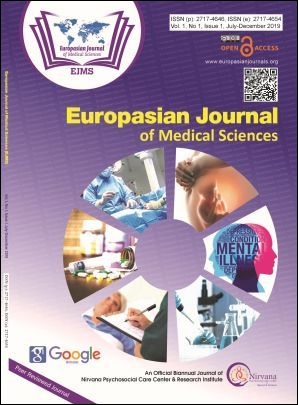Professionalization of Public Health in Nepal
Keywords:
Federalization, Professionalization, Public Health Workforce, Public Health in Nepal, Covid-19 and Public HealthAbstract
Background: The need for a professionalized and highly skilled public health workforce is essential to improving and protecting the health of populations, especially in Nepal. This study aimed to explore: (i) the current trends in public health in Nepal and (ii) the opportunities and barriers to the professionalization of the sector.
Methods: We employed an exploratory qualitative research design and used a combination of semi-structured interviews with senior public health professionals and a small focus group discussion with more recently qualified public health practitioners in Nepal. A total of nine professional stakeholders were interviewed and five junior practitioners joined the focus group discussion. Data was collected via Skype due to COVID-19 restrictions. Thematic analysis was used to analyze the data.
Results: Four core themes emerged from the research: understanding the public health approach; health priorities; federalization and the impact on public health practice; professionalization and workforce development.
Conclusions: Political federalization and more recently COVID-19 have impacted the development, capacity, and employment of this often-neglected workforce. Public health graduates with their broad-ranging knowledge and skills are often overlooked in the health sector. This is related to a general lack of understanding of what public health is and what public health practitioners do amongst politicians and the general public.
Downloads
Downloads
Published
How to Cite
Issue
Section
License
The author(s) retain the ownership of the copyrights for their work published in EJMS without any restrictions. Upon submission, the author(s) grants EJMS a license to publish, including to display, store, copy, and reuse the published content.
License to Publish
By submitting a manuscript to EJMS, the author(s) grant the journal a non-exclusive license to:
- Publish and distribute the content in all formats, media, and platforms (both existing and future), while identifying EJMS as the original publisher.
- Reproduce, display, and store the content in both print and online formats, including institutional and digital repositories.
- Translate, adapt, and summarize the work, including reprints, extracts, and abstracts.
- Develop derivative works based on the original content.
- Include the work in electronic databases and provide links to third-party materials.
Creative Commons Licensing
In addition to EJMS’s publishing rights, authors grant third parties the right to use, share, and distribute their work under the Creative Commons Attribution 4.0 (CC BY 4.0) International License. This allows unrestricted use of the content, provided proper attribution is given to the original author(s) and the journal.

